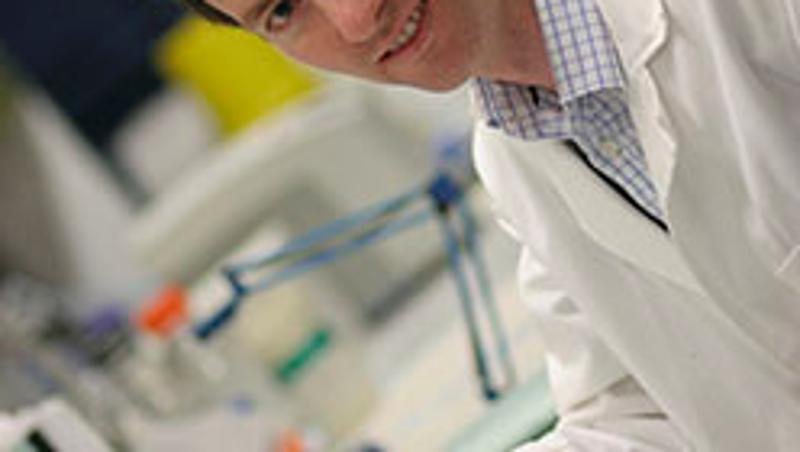
An exciting QUT project to develop sophisticated bio-inks to address the challenge of supplying nutrients and removing waste products from 3D printed replacement body organs, has been funded with a $812,460 ARC Future Fellowship grant to Dr Tim Dargaville.
Dr Dargaville, from QUT’s Institute of Health and Biomedical Innovation (IHBI), said that while bio-fabrication researchers around the world had managed to grow ‘human’ organs using 3D printing techniques, long-term survival of the organs remained a major problem.
“The artificial pancreas is a perfect example of a great idea for curing diabetes, but once implanted inside the body it works for only a short time,” Dr Dargaville said.
“This is mainly because there is a lack of blood circulatory system to deliver nutrients to the inside of the organ.
“To address this problem we aim to develop a new 3D moulding process for generating soft materials containing the micro-channels needed to enable blood supply to an entire organ.”
Dr Dargaville said the 3D moulding process wasn’t limited to any one application.
“Dr Jenny Ekberg, also from IHBI, and I are also investigating new materials that would be a perfect support for nerve regeneration within 3D printed organs,” he said.
“We have devised a way of patterning chemical signals into channels that could encourage nerve cell regeneration.
“And we are developing new synthetic bio-inks or hydrogels using plastic-like materials to be used for printing these dissolvable 3D moulds.
“This research is being conducted with a number of partners including at the University of Ghent in Belgium and the University of Würzburg in Germany.”
Another strand of research related to these developments will be the building of 3D models to study the spread of cancer.
“Cancer cells break off and spread by entering the blood stream. If we can create a model of the circulatory system, we could gain fundamental information on how cancer spreads.”
Dr Dargaville said the fellowship was recognition of the importance of bio-fabrication to the future of medical treatment, and Australia’s economy.
“QUT and the University of Wollongong were the first in the world to offer a dual Master of Biofabrication in conjunction with the University Medical Center Utrecht in the Netherlands and the University of Würzburg in Germany,” he said.
“There is a growing and constant demand for researchers in this exciting new area which is revolutionising healthcare.
“Our first intake of masters students are now heading to one of the European universities to conduct research for their second Master degree, and we accepting applications from graduates in all STEM disciplines to come to QUT to study for this Master degree.”
QUT is part of a national collaborative group of five major Australian universities that form the ATN (Australian Technology Network of Universities).
Media contact: Niki Widdowson, QUT Media 07 3138 2999 or n.widdowson@qut.edu.au
After hours: Rose Trapnell, 0407 585 901, media@qut.edu.au


